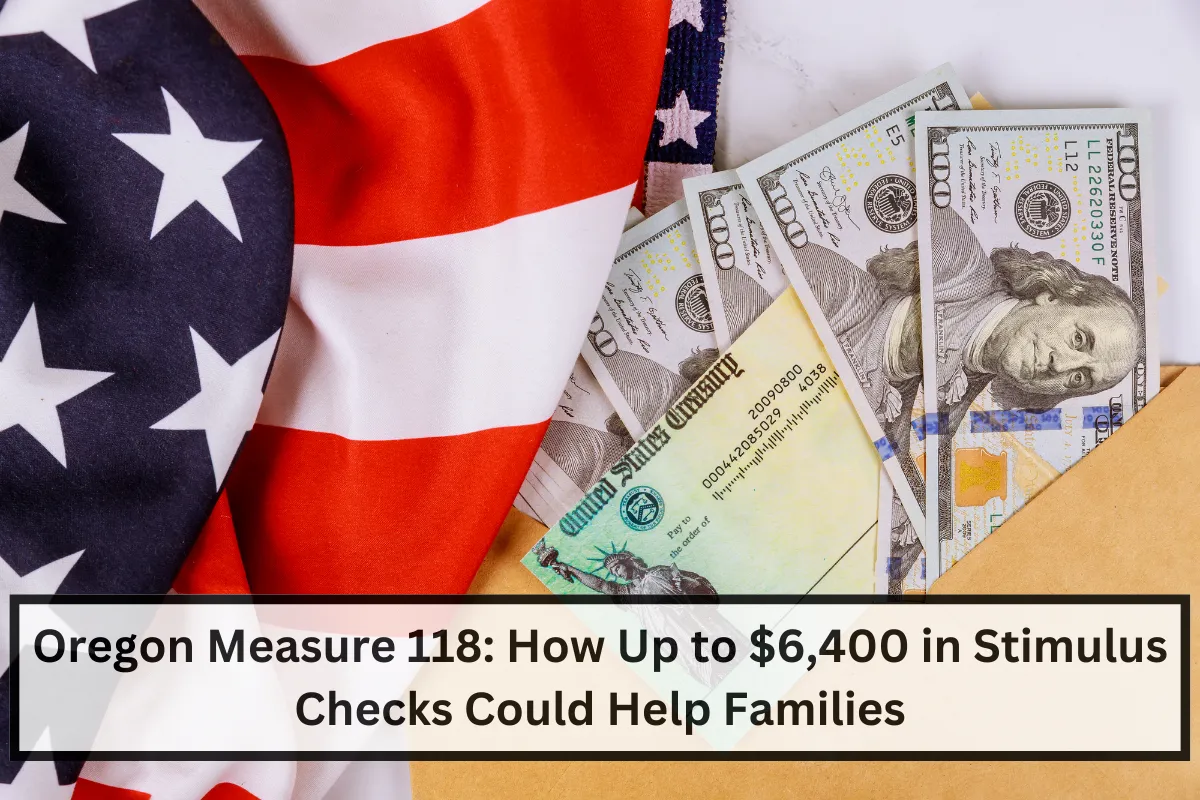Measure 118 is a new proposal in Oregon aimed at supporting low- to middle-income families with a much-needed financial boost. If approved, it would provide up to $6,400 in stimulus tax refunds per family.
This measure could make a big difference by giving families extra cash to handle essential costs like housing, food, and utilities. Here’s everything you need to know about Measure 118 and its potential impact on Oregon’s residents and economy.
What is Measure 118?
Measure 118 proposes giving Oregon families up to $6,400 in a stimulus check tax refund or direct cash rebate. This could mean $1,600 for each eligible person in a household, benefiting up to six people per family.
Oregonians may vote on this proposal on the same day as the U.S. presidential election in November, making it possible for residents to receive financial aid during the high-cost winter months.
How Measure 118 Works
Measure 118 would allow eligible families to choose between a refundable tax credit and a direct cash rebate. This flexibility lets families decide how to use the money according to their immediate needs.
The goal is to help about four million people across the state handle essential costs, whether it’s for rent, groceries, or other necessary expenses.
Eligibility Requirements for Measure 118 Stimulus
To qualify for the Measure 118 stimulus, applicants must meet the following criteria:
- Income Level: The measure targets low- to middle-income households to help families facing financial challenges.
- Residency: Applicants must have lived in Oregon for at least 200 days in the past year.
- Tax Obligation: Individuals without a tax obligation are still eligible for the stimulus. Those with tax obligations can opt to receive a benefit based on their tax situation or a tax credit.
The measure gives families freedom on how to spend the money, focusing on covering their most critical needs. This approach aims to offer relief to those struggling with high housing costs and other rising expenses.
Economic Impact of Measure 118
Measure 118 has the potential to strengthen Oregon’s economy. If passed, it could add around $6 billion each year to the state’s economy, with families spending their stimulus on immediate needs, helping local businesses thrive.
Community leaders believe that this program could provide stability for renters and families who face high housing costs in Oregon’s tight rental market.
Kim McCarty, from the Community Alliance of Tenants, explained that a $1,600 check could mean the difference between a stable home and homelessness. By addressing the housing crisis, Measure 118 could help Oregon’s residents maintain safe, affordable homes.
Future Outlook: Long-Term Stability for Families
The stimulus money from Measure 118 would be distributed over three years, helping families manage ongoing expenses without constant financial stress. This measure is designed to offer more than just short-term relief, aiming to bring stability to low- and middle-income families in Oregon.
Local governments also hope that this measure will ease Oregon’s affordability crisis, which has been worsened by rising rents and limited housing availability. While Measure 118 alone may not solve the housing crisis, it can be a vital support system for families.
A Step Toward Solving Oregon’s Housing Crisis
Supporters of Measure 118 see it as a step forward in helping residents stay in their homes. This plan provides critical funds for those who need it most and could help reduce the risk of more people becoming homeless.
McCarty emphasized the importance of programs like Measure 118 for managing rent costs and promoting housing stability in Oregon.
Measure 118 is a significant proposal aiming to improve the lives of Oregon’s residents by providing essential financial support.
By offering cash rebates or tax credits, this measure can make a meaningful difference, allowing families to focus on their basic needs.
With potential economic and social benefits, Measure 118 could create a more stable future for thousands of Oregon families.


How can I apply for this support?